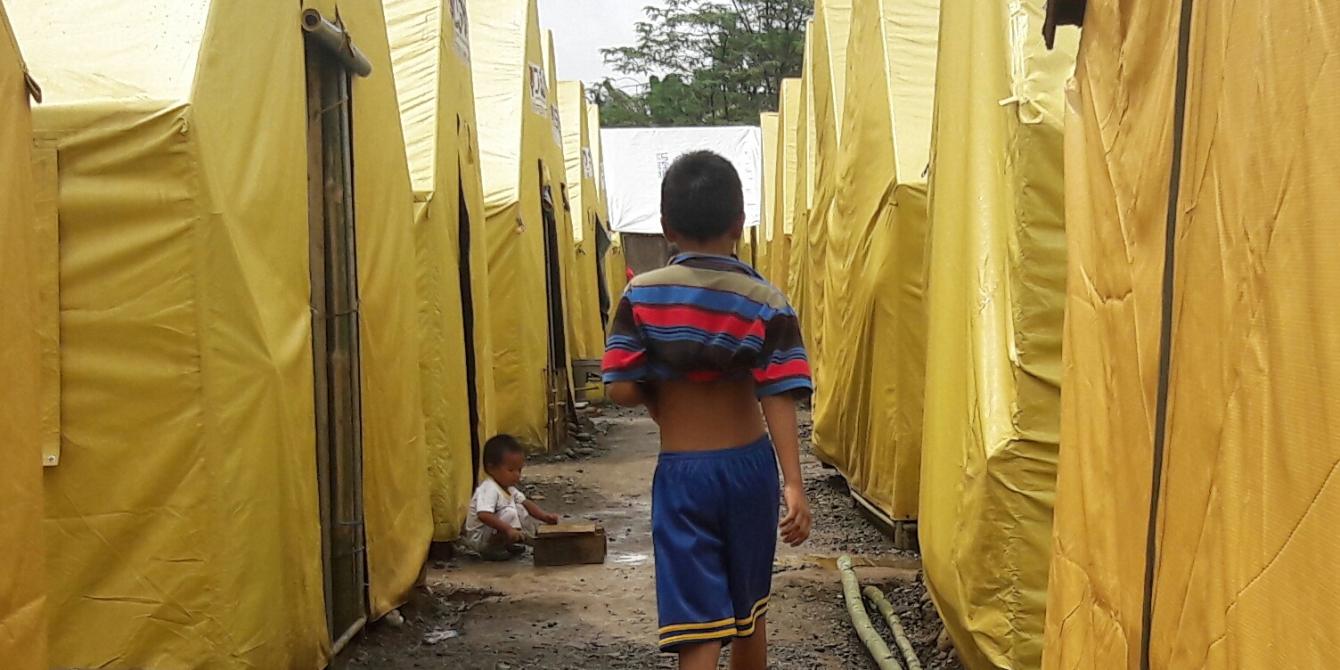
Ahmed and his solar lamp that beckons home
Ahmed* is seven. His father Zaldy* said the boy is fond of lamps that each night in their house in barangay Lilod, Marawi City, Ahmed always wanted the LED lights turned off so he can have the soft glow of the lamp when he does his homework or read something before he sleeps.
"Gustong-gusto nya Math. Pagkatapos, magbabasa siya ng superhero na nakalimutan ko title. (He likes doing Math. When he's done, he reads a superhero comic book whose title I forgot)," said Zaldy. "His mother and I like it that he does his homework and reads instead of watching TV or tinker with our mobile phones."
When asked about his homework and what he reads, Ahmed, who wants to be called by this nickname as he said he has two long first names, said he likes Mathematics, Science and Edukasyon sa Pagpapakatao (Values Education).
His favorite superhero is Green Lantern. "Idikit nya yung ring nya sa lantern tapos iilaw. Dami pa syang ibang superpowers. (He sticks his ring on the lantern to light it up. He has many other superpowers)," he said, noting that he also prefers that the superhero's colors are all green – from his ring to his lantern and his clothes.
In their dwelling in the Tent City, an evacuation center in Pantar, Lanao del Norte, Ahmed's family is learning to grasp the tragic reality that their peaceful nights are gone. Zaldy said he cries silently every approach of night time because Ahmed talks about his Math and Science textbooks and his comics under the soft beam of the lamp.
"Pero minsan, hindi na siya nagsasalita tungkol doon siguro dahil nakikita nyang naiiyak ako. Nakikipagkuwentuhan na lang sa kung sinong nagkukumpulan sa dilim. (Sometimes, he doesn't talk about it anymore because he sees me cry. He just mingles with people talking to each other in the dark).
But a month after they received a solar lamp from Humanitarian Response Consortium (HRC), an Oxfam partner that provides solar lamps to families displaced by the Marawi siege, things brightened up for Ahmed. HRC provides water kits and sanitation, hygiene and bathing facilities based on IDP needs. The solar lamp is one urgent item requested by IDPs.
The incoming Grade 2 pupil of Lilod-Madaya Elementary School saw the solar lamp as his beacon of hope, only that he didn't have his study table and reading materials anymore. On their second month, his family received textbooks and other reading materials donated by schools in Pantar, Lanao del Norte, their host province.
As his school and their house are located in the center of the firefight, they have been damaged heavily and would take long to rebuild.
For now, Ahmed has his solar lamp. He slumps on the wooden bed to read or on his small wooden stool. Their floor is the ground so when it rains, it's muddy. When it's windy, the light from the solar lamp moves with the wind as the tent that is not made of sturdy material sways with it. "I don’t like it when that happens. It makes me dizzy," he said. His textbooks are also readings in Maranao language that are used in the Mother Tongue subject. He prefers English as he said he already knows the Maranao language.
Ahmed's family is one of more than 14,000 households provided with basic living items that include the solar lamp, which is also one of the most requested items in the kits distributed by HRC apart from pillows, blankets, pails, basins, dish drainers, kettles, cooking pot and plywood. Too bad school supplies and reading materials are not included in the kit.
Zaldy could only hope for the best for Ahmed, who is bright and seems to behave ahead of his years. There are a few times that his son was visibly angry with their living conditions. When this happened, he said he diverted Ahmed's attention to the kids playing to urge him to join them.
By nightfall, Zaldy said he is not that scared anymore of seeing how Ahmed will feel again when it's dark, as he has learned to make do with his solar lamp and his longing for home.
*Ahmed's full name and Zaldy's surname withheld.

 Follow us on Facebook
Follow us on Facebook Instagram
Instagram Follow us on Twitter
Follow us on Twitter LinkedIn
LinkedIn